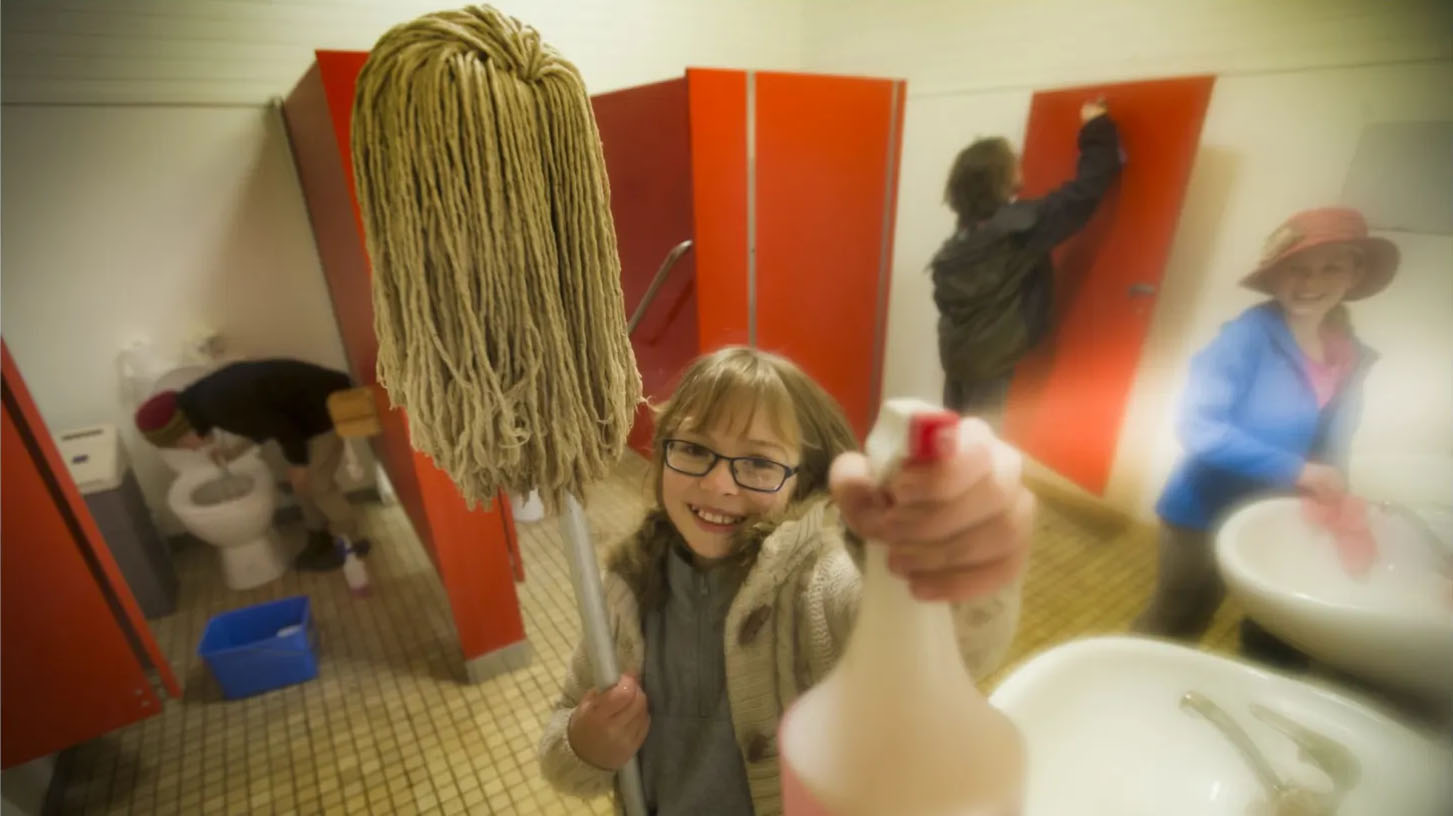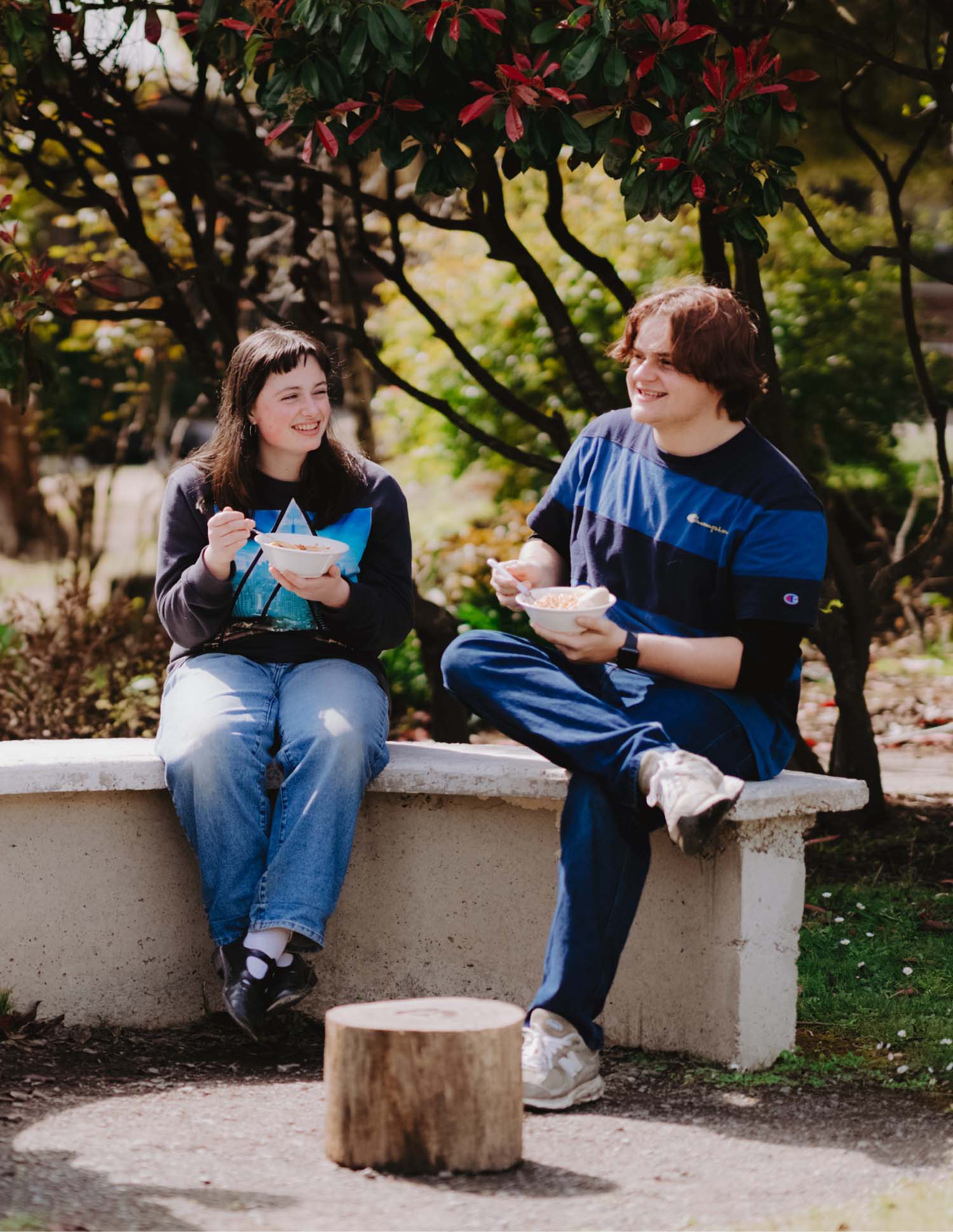Henrietta Cook and education reporter
Updated August 4, 2015
Students scrub toilets at Candlebark school to learn ‘adults aren’t their servants’
Should students be taught to scrub toilets and vacuum classrooms?
One Victorian school certainly thinks so.

Clean sweep: Candlebark students hard at work. Credit:Simon O’Dwyer
Every student at the Candlebark school in Romsey, north of Melbourne, has to clean for 20 minutes at the end of the day.
This involves donning rubber gloves and scrubbing toilets, a practice that in the past was considered a punishment at schools.
Teams of eager students also replenish bathroom supplies, dust, tend to the school’s vegetable garden, weed and dig up blackberries.
The independent school, which has classes from prep to year 10, does not employ cleaners and the school bus will not leave until the classrooms have been cleaned to a high standard.
Principal and bestselling author John Marsden said cleaning made students responsible and gave them an understanding of what adults do.
“It teaches them that adults aren’t always going to be there as their servants. They have to be responsible for their mess, and they can carry out adults’ tasks.”
But Mr Marsden conceded that asking students to clean toilets had raised a few eyebrows.
“Some parents were startled at the idea that their kids should clean toilets. I said, ‘why is that different to an adult cleaning a toilet?’ If I have to do it at the age of 64 I don’t see why a 10-year-old should be exempt.”
He said most schools had “tokenistic” arrangements under which students had to tidy the classroom at the end of the day and put their chairs on the desks.
“But students at other schools know that an army of cleaners will come in and scrub the place inside out every evening,” Mr Marsden said.
“Our kids know that won’t happen.”
The cleaning policy will be rolled out at the author’s second school, the Alice Miller School, which will open its doors to senior students in Macedon next year
Some students take their cleaning skills home, surprising their parents by suddenly vacuuming the living room or wiping down a bench.
Grade 6 student Bridget said cleaning her school “wasn’t that bad”.
“It teaches us to clean up our own mess.”
The 11-year-old said it was unfair to assume that others would clean up after her.
Associate Professor Erica Frydenberg, from the University of Melbourne’s Graduate School of Education, said it was common for students to clean schools in Japan, which has a “collectivist culture”.
She said cleaning taught students to be responsible for the environment.
But she said it was important that teachers explained to students the rationale behind asking them to clean.
“This is not about toilet cleaning, it is about shared responsibility.”
She said students were often given cleaning duties on school camps, and Candlebark had transplanted this practice into the everyday running of the school.

